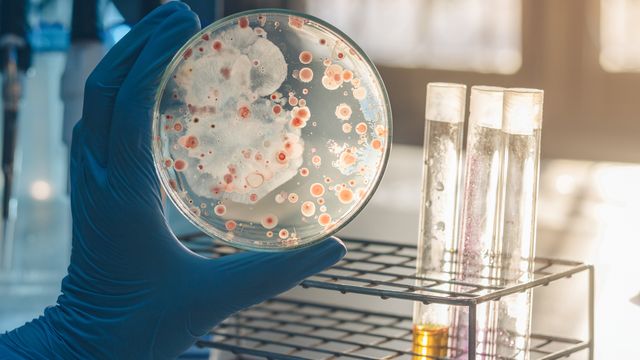Cryptococcus spp. Culture Testing in Avian Species
The Cryptococcus genus encompasses several species that can cause significant health issues in avian species, including Cryptococcus neoformans and Cryptococcus gattii. In the context of clinical and healthcare testing, accurate identification and culture-based methods are crucial for diagnosing and managing these infections. This testing method is particularly important because it allows for the isolation and characterization of Cryptococcus spp., which can inform treatment strategies and aid in preventing the spread of infection.
The process involves collecting samples from affected birds, such as cerebrospinal fluid (CSF), respiratory secretions, or tissues, and inoculating these onto specialized culture media designed to support the growth of Cryptococcus. Once the organism is isolated, it can be further identified using biochemical tests, serological assays, or molecular techniques like PCR.
The significance of this test cannot be overstated, especially in regions where avian cryptococcosis is endemic. Accurate diagnosis aids veterinarians and researchers in understanding the prevalence and spread of these pathogens among different bird species. Furthermore, it helps in monitoring the effectiveness of control measures implemented by regulatory bodies and animal health organizations.
Regulatory compliance for this test is governed by standards such as ISO 14695:2013, which provides guidelines for microbiological testing laboratories. Compliance with these standards ensures that results are reliable and can be trusted in legal and clinical settings. The accuracy of Cryptococcus spp. culture tests also plays a vital role in research studies aimed at understanding the pathogenesis of cryptococcosis.
Understanding the lifecycle and transmission dynamics of Cryptococcus spp. is essential for developing effective control strategies. This testing method provides critical data that can inform public health policies, particularly in areas where avian species play a significant ecological role.
Why It Matters
The timely diagnosis and accurate identification of Cryptococcus spp. infections are paramount for the well-being of avian populations. Early detection allows for prompt initiation of antifungal therapy, which can significantly improve survival rates and reduce morbidity. Moreover, understanding the spread of these fungi helps in implementing targeted interventions to limit their impact on both wildlife and domesticated birds.
From a broader perspective, accurate culture-based testing contributes to public health by preventing the dissemination of infectious agents through controlled environments such as zoos, aviaries, and veterinary clinics. This is especially important given that avian cryptococcosis can sometimes spill over into human populations, posing zoonotic risks.
The importance of this test extends beyond mere diagnosis; it also supports epidemiological studies aimed at tracking the global distribution of Cryptococcus spp. These insights are invaluable for wildlife conservation efforts and for informing policies on biosecurity in the poultry industry.
Industry Applications
| Application Area | Description |
|---|---|
| Zoological Institutions | Culture testing ensures that birds under their care are free from Cryptococcus spp. infections, contributing to the health and longevity of these animals. |
| Aviculture Farms | Regular monitoring helps in maintaining disease-free populations, which is essential for the economic viability of farming operations. |
| Wildlife Rehabilitation Centers | Detection of Cryptococcus spp. allows for appropriate treatment and rehabilitation of infected birds, enhancing their chances of successful release back into the wild. |
| Veterinary Hospitals | Accurate testing supports effective clinical management of avian patients with suspected infections. |
The data generated from Cryptococcus spp. culture tests is crucial for research endeavors focused on understanding the environmental factors that contribute to the prevalence and virulence of these fungi. This information can guide the development of novel therapeutic approaches and preventive measures.
Why Choose This Test
- Precision in identification through isolation and culture.
- Compliance with international standards like ISO 14695:2013.
- Support for epidemiological studies tracking the spread of Cryptococcus spp.
- Enhanced biosecurity measures implemented by regulatory bodies.
- Promotion of wildlife conservation efforts.
- Aids in the development and implementation of targeted public health policies.
- Contributes to the economic stability of aviculture farms through disease management.
The combination of these factors makes Cryptococcus spp. culture testing an indispensable tool for healthcare professionals, researchers, and policy-makers involved in avian health and welfare.





